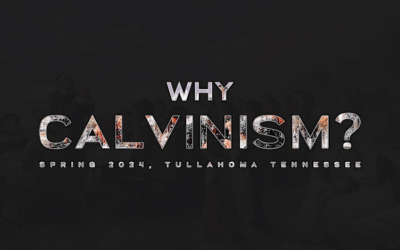“For God so loved the world, that he gave his only Son, that whoever believes in him should not perish but have eternal life. (John 3:16, ESV)
Andrew Rappaport and RA Fuente’s debate on Apologetics Live revealed not just how not to debate, but also several logical and exegetical fallacies demonstrated by Mr. RA Fuente, of RA Fuente Apologetics.[1] During cross-examination, Mr. RA Fuente tried to trap Andrew into admitting God has salvific love for unbelievers. Andrew admitted the word “world”, κοσμος, meant the world in general. However, he claimed “love”, αγαπη, was a general love, and tried to explain his answer in the context of John 3:17–18.
Mr. RA Fuente would not have it. He committed an exegetical fallacy called “root fallacy” by making “love” always mean salvific love. He also committed the interpretive fallacies of taking a verse out of context and eisegesis, putting his own meaning into the text. Andrew rightly pointed out people who do not want to teach verses in context shouldn’t call themselves pastors or Bible teachers.
So, what does the context say God’s love for the world is, salvific or general? If it is salvific, then everyone is saved and believes in Jesus Christ as the Son of God. This does not hold with experience. If it is general, then God only gives saving love only to those who believe.
Surrounding Context
The surrounding context is the verses before John 3:16 and after:
And as Moses lifted up the serpent in the wilderness, so must the Son of Man be lifted up, that whoever believes in him may have eternal life. For God so loved the world, that he gave his only Son, that whoever believes in him should not perish but have eternal life. For God did not send his Son into the world to condemn the world, but in order that the world might be saved through him. Whoever believes in him is not condemned, but whoever does not believe is condemned already, because he has not believed in the name of the only Son of God. And this is the judgment: the light has come into the world, and people loved the darkness rather than the light because their works were evil. For everyone who does wicked things hates the light and does not come to the light, lest his works should be exposed. But whoever does what is true comes to the light, so that it may be clearly seen that his works have been carried out in God. (John 3: 14 – 21, ESV).
The previous section refers to an incident in Israel’s history where they grumbled against God, God judged them with a plague of venomous snakes, and God provided salvation from death through looking at a bronze snake on a pole (John 3: 14, Numbers 21: 4 – 9). Jesus claimed, in a similar way, he would be “lifted up that whoever believes in him may have eternal life” (John 3: 14b – 15, ESV).
The subsequent section elaborates on how people are saved and how they are condemned. While God “loves” the world, he saves only those who believe in the Son. He saves them by giving eternal life and not condemning them (vv. 16 – 18). Those who do not believe will perish because they are already condemned for their love of sin, rejecting the truth, hiding from the truth, and not believing in “the only Son of God” (vv. 16 – 21). The context makes it clear that God does not give saving love to the whole world, but only to believers.
What is Love?
The Greek form of the word is in the aorist active indicative. This refers to a complete action in the past. In this case, the effects carry over into the present.
The range of meaning can mean “cherish, have affection for, love, take pleasure in, or prove one’s love”.[2] This proves “love” does not always mean salvific love. The context will determine the meaning of this word, like any other word.
Book Context
What does John say about God’s special love? Here are a few examples of saving love:
- John 1: 12 – 13: “But to all who did receive him, who believed in his name, he gave the right to become children of God, who were born, not of blood nor of the will of the flesh nor of the will of man, but of God” (ESV).
- John 14: 23: “Jesus answered him, ‘If anyone loves me, he will keep my word, and my Father will love him, and we will come to him and make our home with him’” (ESV).
- John 15: 13: “Greater love has no one than this, that someone lay down his life for his friends” (ESV).
- John 17: 23: “I in them and you in me, that they may become perfectly one, so that the world may know that you sent me and loved them even as you loved me” (ESV).
Scriptural Context
God shows he has a general love for people in the Scriptures as well:
- Matthew 5: 43 – 44: “But I say to you, Love your enemies and pray for those who persecute you, so that you may be sons of your Father who is in heaven. For he makes his sun rise on the evil and on the good, and sends rain on the just and on the unjust” (ESV).
- Luke 6: 35: “But love your enemies, and do good, and lend, expecting nothing in return, and your reward will be great, and you will be sons of the Most High, for he is kind to the ungrateful and the evil” (ESV).
Conclusion
One has to read a passage in context, know what words mean in any given context, and use logic when interpreting a passage. Mr. RA Fuente revealed in his debate with Andrew he does not properly apply those skills in interpreting this passage. This was the case in many of the passages he used. I hope for his sake he acquires those skills after humbling himself and repenting of his clear pride evidenced in the debate.
For more resources that will strengthen you in the faith and your love for the Lord Jesus Christ, please check out the store section of the website. There are tons of resources that will help you in biblical interpretation. Lord bless you.
[1] Andrew Rappaport, RA Fuentes, “Debate: Calvinism is Useless and Dangerous”, December 2, 2021, https://www.youtube.com/watch?v=DWruITRZXpw, Accessed December 4, 2021.
[2] Frederick William Danker, A Greek – English Lexicon of the New Testament and Other Early Christian Literature, Third Edition (Chicago, Illinois, The University of Chicago Press, 2000). 5, 6.





0 Comments